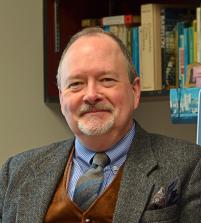Capital Offense — John G. Stackhouse, Jr.
First, a declaration: I am an evangelical and I am against the death penalty
First, a declaration: I am an evangelical and I am against the death penalty. Many people, within evangelicalism and without, seem to view such a declaration as a contradiction in terms. Aren't all evangelicals in favor of the death penalty? Indeed, since the Bible commands capital punishment (somewhere, somewhen) and we evangelicals are "Bible people," isn't that the end of the matter? Well, it's not. And for at least one overwhelming evangelical (and Christian) reason.
I do think a strong biblical and pragmatic case can be made, and is sometimes made, for capital punishment; the same can be said for opposition to capital punishment. We evangelicals tend to binary views of the world, and we have to resist that tendency in this case to recognize the divisions within our own ranks, as well as elsewhere, on these questions. There is no single obviously right answer.
Martin Marty's recent Sightings (January 20) points to the danger of the premature termination of someone's opportunity to repent and believe the gospel. So he challenges, on these evangelical grounds, Colson & co. as they find refuge in God's sovereignty when the courts decide that someone should enter the next life right now, willy-nilly: "If God had it in mind and plan for sinners to be saved, they say, God would have acted to save before the executioner killed." Marty asks, How can they be so sure?
An entirely different evangelical argument, however, needs to surface. As another form of evangelical (I know that Marty likes to tease us about his Lutheran tribe being the "original evangelicals"), I would say that our main concern ought to be the premature termination of someone's life -- "decision for Jesus" or not -- because our court system made a mistake.
As evangelicals of whatever stripe -- indeed, simply as Christians -- we ought to believe in the profound fallibility, yes, the corruption of human institutions. We cooperate with them as best we can, even redeeming them as far as we can, but we never surrender our robust doctrine of sin; particularly not when we consider the vexed question of the history and character of human courts.
But in the curious blending of evangelicalism and Americanism that Mark Noll recently has traced so masterfully in America's God: From Jonathan Edwards to Abraham Lincoln, it seems that evangelical supporters of capital punishment remain generally pretty confident about most things American, including the American justice system. Their confidence extends, perilously, to its ability to sort out who belongs on death row.
How can they have such confidence, an evangelical might ask, both theologically and practically: that is, in view of the Bible's own low estimation of fallen human institutions and in the face of case after case now coming to light of mistaken convictions? Evangelicals should have a deep pessimism about the reliability of such a system, such that we make sure it cannot take away the last hope of reprieve in a legal execution. Still, I can hear my evangelical counterparts replying again that if someone is unjustly executed by a fallible system, God both sovereignly allows it to happen and can somehow "make it up" to them in the next life. Maybe. But this is a "God of the gaps" argument, a recourse to a "deus ex machina" who always makes up for our mistakes, however reckless or self-righteous they might be.
God values this life, as well as the next one, and expects us to do the same. The whole "sacredness of life" argument that drives capital punishment supporters to ask for the death penalty can also be used to support the removal of a sinful court system's ability to terminate the life of a mistakenly-convicted person.
What then about the related and imminent question of the prospect of war and its state-sanctioned killing? Well, perhaps it's enough in this short space simply to note that evangelicals don't all agree on that question, either!
Author, John G. Stackhouse, Jr., is the Sangwoo Youtong Chee Professor of Theology and Culture at Regent College, Vancouver, Canada.


